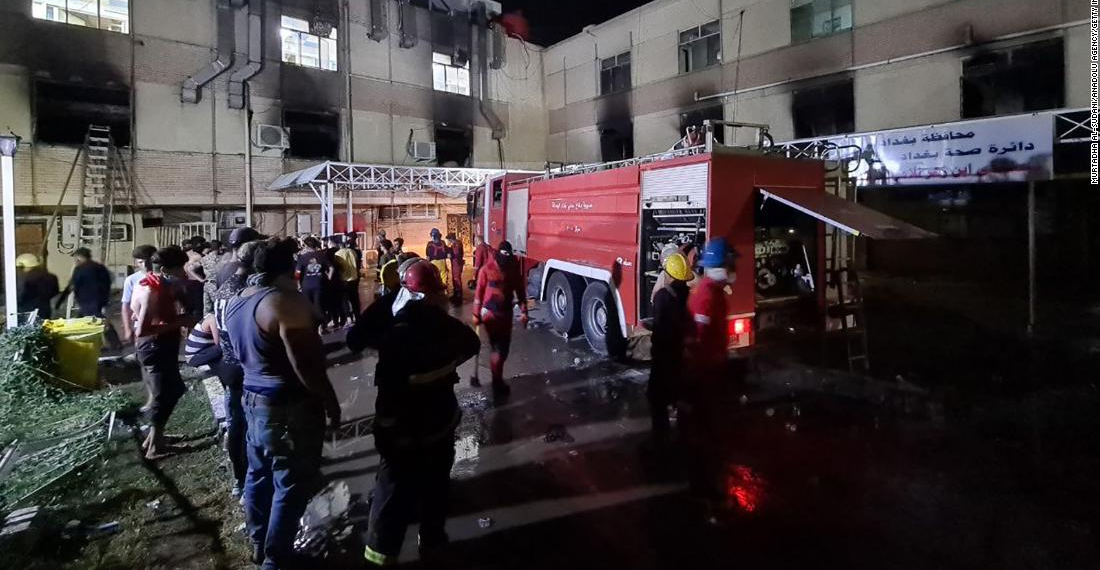Several dozens have been killed with dozens more injured in a fire at a hospital in Baghdad, Iraq, where COVID-19 patients are being treated, according to the Iraqi Interior Ministry.
The fire erupted on Saturday night in the middle floor of the Ibn Khatib Hospital. The initial reports suggest that failure to comply with safety requirements for the storage of oxygen cylinders had caused the fire. Casualties are estimated to be at least 82.
The Iraqi civil defence was able to rescue around 90 among the 120 who were in the Intensive Care Unit. They have also succeeded in preventing the fire from spreading to the upper floors. On the streets, people saw hospital visitors jumping out of windows and emergency staircases to avoid suffocation.
Prime Minister Mustafa al-Kadhimi ordered an investigation and three day's of national mourning. He described the hospital fire as a "setback to the country's national security."
Iraq's healthcare system had suffered badly under the COVID-19 pandemic. Since mid-February, the number of patients has been increasing across Iraq.
Several countries have offered their condolences. Iraqi Kurdistan government offered its support to treat the patients and offer medical help.
Source: commonspace.eu with various agencies.
Picture: Scenes from the aftermath of the fire at the hospital in Baghdad.







